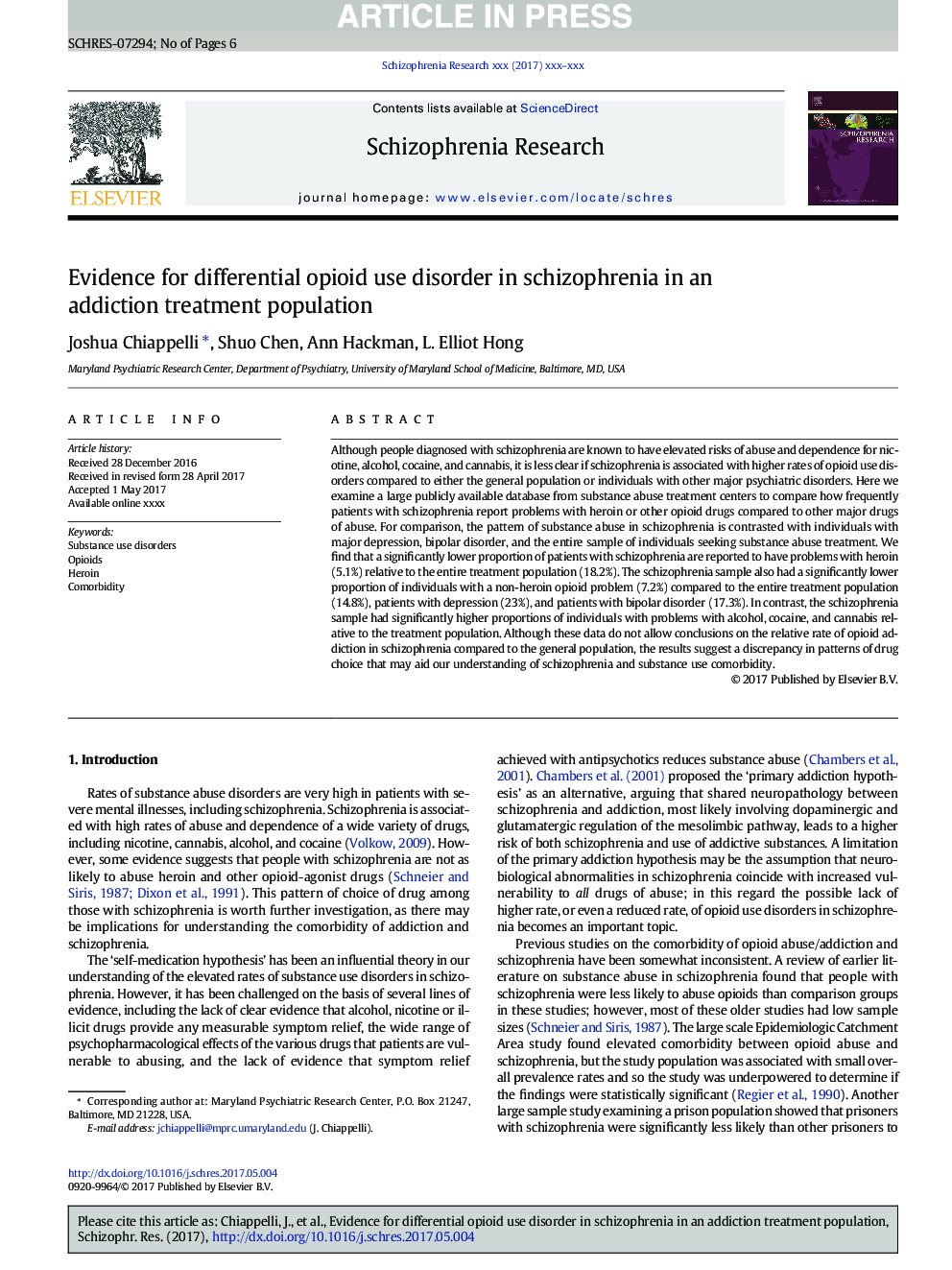| Article ID | Journal | Published Year | Pages | File Type |
|---|---|---|---|---|
| 6821557 | Schizophrenia Research | 2018 | 6 Pages |
Abstract
Although people diagnosed with schizophrenia are known to have elevated risks of abuse and dependence for nicotine, alcohol, cocaine, and cannabis, it is less clear if schizophrenia is associated with higher rates of opioid use disorders compared to either the general population or individuals with other major psychiatric disorders. Here we examine a large publicly available database from substance abuse treatment centers to compare how frequently patients with schizophrenia report problems with heroin or other opioid drugs compared to other major drugs of abuse. For comparison, the pattern of substance abuse in schizophrenia is contrasted with individuals with major depression, bipolar disorder, and the entire sample of individuals seeking substance abuse treatment. We find that a significantly lower proportion of patients with schizophrenia are reported to have problems with heroin (5.1%) relative to the entire treatment population (18.2%). The schizophrenia sample also had a significantly lower proportion of individuals with a non-heroin opioid problem (7.2%) compared to the entire treatment population (14.8%), patients with depression (23%), and patients with bipolar disorder (17.3%). In contrast, the schizophrenia sample had significantly higher proportions of individuals with problems with alcohol, cocaine, and cannabis relative to the treatment population. Although these data do not allow conclusions on the relative rate of opioid addiction in schizophrenia compared to the general population, the results suggest a discrepancy in patterns of drug choice that may aid our understanding of schizophrenia and substance use comorbidity.
Related Topics
Life Sciences
Neuroscience
Behavioral Neuroscience
Authors
Joshua Chiappelli, Shuo Chen, Ann Hackman, L. Elliot Hong,
